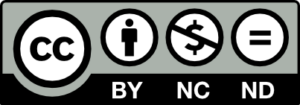There’s no sugarcoating it: The 2024 election was terrible news for science, the environment, and the role of expertise and evidence in public policymaking. A lot of important things we care about and have worked hard to create and protect are going to be broken, some beyond repair. Destructive things we worked hard to prevent are going to happen — including some that we won’t be able to undo.
While nothing exactly like the second Trump administration has happened before, some elements of what we’re likely to see mirror the era of Canadian Prime Minister Stephen Harper. And several scientists affected by Harper’s repressive policies tell me that by working together and planning strategically, we will be able to stop some of this.
During Harper’s time in office, from 2006-2015, Canadian government scientists were prevented from sharing their expertise in government policymaking. The government also banned them from speaking to journalists or the public, often referred to as “muzzling.” The Harper administration destroyed libraries and stopped some new hiring of experts in key areas.
The intent was simple: The administration had ideological policy goals, and they weren’t interested in letting facts, evidence or reality get in the way of achieving them.
The second Trump administration will almost certainly do this — and worse. They already took a stab at it the first time, when government experts who warned the public about harmful policy choices faced serious professional retaliation and taxpayer-funded sources of key information were suppressed, hidden, or even deleted.
What can we do about it?
I spoke with several colleagues who experienced working under the Harper administration, as well as several experts in the role of evidence-based public policymaking. They offered some clear advice.
Step One: They Can’t Delete What They Don’t Exclusively Control
For scientists working at government agencies, they suggest making copies of everything so it can be stored somewhere else — and to do that as soon as possible, certainly well before the next administration starts.
For example, does your agency have a publicly funded database, report, or educational website that has anything to do with climate change, conservation, diversity, equity and inclusion, or public health? It’s very likely that the next administration will try to suppress or delete at least some of it. A nongovernment partner, such as a university or large nonprofit, can host copies of these important documents and data if they’re shared in advance.
These efforts are already underway, but it’s vital to spread the advice as far as possible, as quickly as possible, so no data is left vulnerable.
Step Two: Prepare to Speak Out (or Blow the Whistle)
Once the new administration takes place, one of the first things they’re likely to do will be to institute their own muzzling policy.
With this in mind, several colleagues pointed out the importance of getting information about what’s happening to the public. Investigative journalism sites like ProPublica are already actively seeking sources from government agency employees and have provided detailed information on how to safely and anonymously communicate with them. Research those options now, so you have the tools in your back pocket.
While it may become impossible to share key information through normal official channels, some of the experts I spoke with suggested that anonymous or pseudonymous social media accounts and blogs can be used to share expertise and key updates through unofficial channels. During the first Trump administration, some brave government employees set up unofficial “alt” or “rogue” social media accounts, anonymously sharing what experts in those agencies really thought. Perhaps the most famous of these was the “Alt National Park Service,” which arose after the Trump administration limited the National Park Service’s ability to communicate with the public.
Step Three: Collaborate (Sometimes Quietly)
There’s another way to make sure important work still happens and gets communicated, several colleagues told me: Government scientists can work as part of teams that include external scientists.
Working with collaborators on research projects means that even if you aren’t allowed to comment on a result or project, someone else can share it. If the Trump administration tries to stop it from getting released, consider removing yourself as a named author and letting the project go forward without you, perhaps with you listed in the acknowledgments instead of as a coauthor.
Step Four: Reveal How the Sauce Is Made
Several experts pointed out that agency-level regulatory decisions and reports, and changes to internal policies about how to communicate them with the public, rarely make headlines. This means that far too much of this will happen in the shadows.
At the same time, we all have a duty to make sure that everyone knows that — despite some occasional bureaucratic annoyances — we are safer, healthier, and more prosperous when key decisions are made by people who know what they’re talking about evaluating the best available evidence, rather than by uninformed idealogues. This can take many forms but requires active communication with the public and with journalists about why science, evidence, and expertise matter.
Step Five: Embrace Bureaucracy
And what if you see potential harm coming down the pike? Some experts advise using all the resources at your disposal to slow their implementation. Large bureaucracies like government agencies have their advantages in this regard.
For example, right now right-wing groups are bombarding government agencies with Freedom of Information Act requests, trying to weed out people who have advocated for diversity programs or had negative things to say about Trump. Others are looking for programs that mention climate change or other environmental threats — programs they want to dismantle. This will likely continue once the new administration is in office. Delaying responses, providing incomplete answers, and similar tactics can very well shield some people and things that we care about from prying eyes.
One advantage we have is that Trump administration attorneys and officials looking for this information (or people to punish) aren’t likely to be the best in their fields. As attorney Ken White put it, “Clown shoes are better than jackboots.”
Step Six: As Painful As This Is, We Can Get Through It
While the “muzzling” of scientific expertise under the Harper administration has effects that are still being felt a decade later, it did not and will not last forever.
Neither will this.
Assuming we still have free and fair elections in this country, there are midterms in 2026, during which Democrats have a shot at reclaiming one or both houses of Congress. We don’t have to hold off this assault on science and the environment forever. Ideally we just have to slow some of it for two or four years.
Meanwhile, external groups will almost certainly bring many lawsuits against the Trump administration. We can save a lot of important things we care about by being strategic and collaborative, keeping an eye on the light at the end of the tunnel.
Everyone I spoke with stressed that standing up to an autocratic government carries some professional, and even personal, risk — and you may not be in a position to do it. You’re not a bad person for protecting yourself and your family.
But a few brave and anonymous civil servants may be our last, best line of defense.
Further Reading:
“The War on Science: Can the U.S. Learn from Canada” by Sarah Boon (2017)
“Ending the Donald Trump War on Science: What you need to know about policies on science, the environment and the coronavirus” by John Dupuis (2020)
“A survivor’s guide to being a muzzled scientist” by Michael Rennie (2017)
“The guide to fighting back against Trump 2.0” by Leah Greenberg Ezra Levin (2024)
“On Organizing” by Rabbi Danya Ruttenberg (2024)
“Guidance on Speaking Truth to Power” by Alexandra Morton (2024)
“Resources for Federal Scientists” by the Union of Concerned Scientists (2024)
The opinions expressed above are those of the author and do not necessarily reflect those of The Revelator, the Center for Biological Diversity or their employees.

Previously in The Revelator:
Inhumanity at the Border — and Beyond


